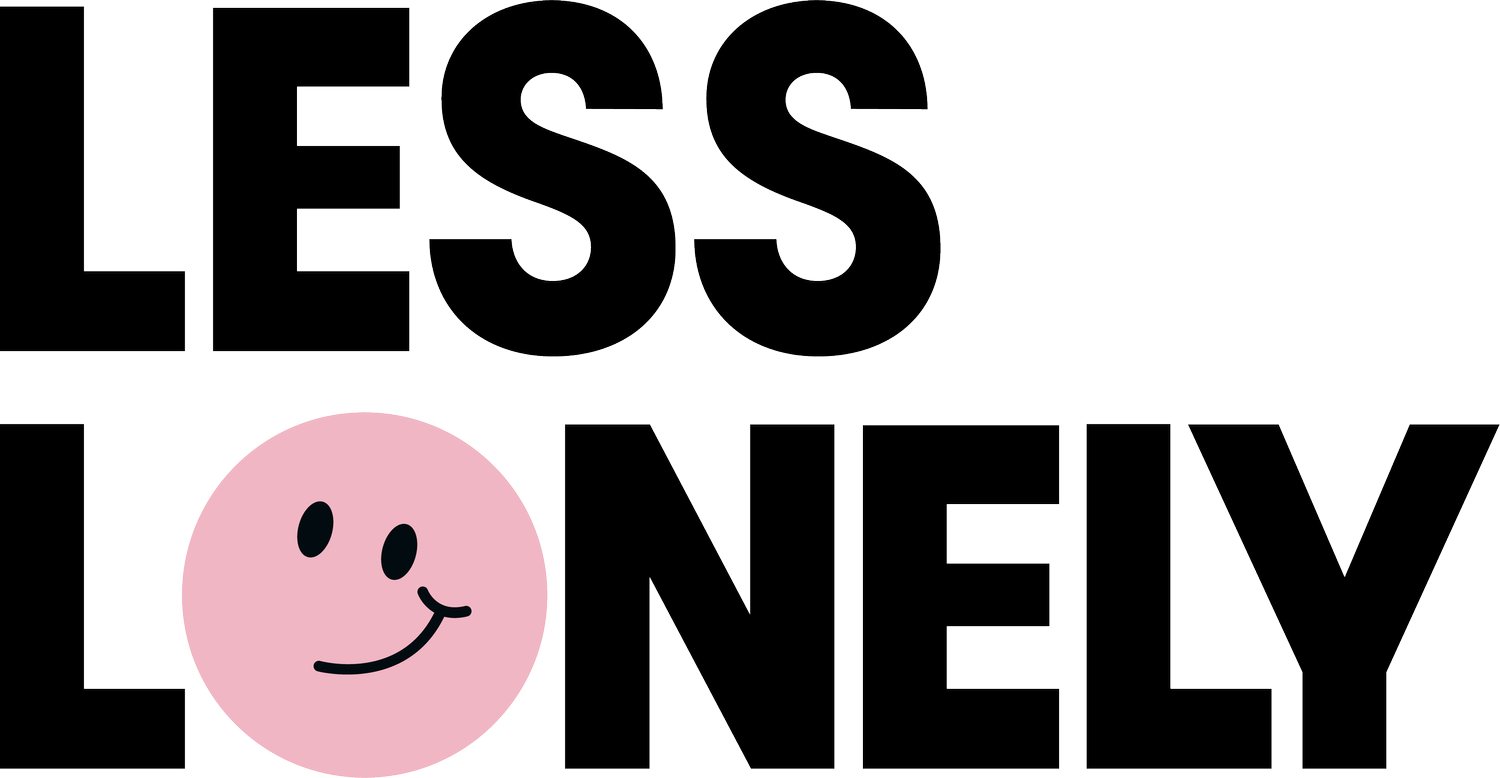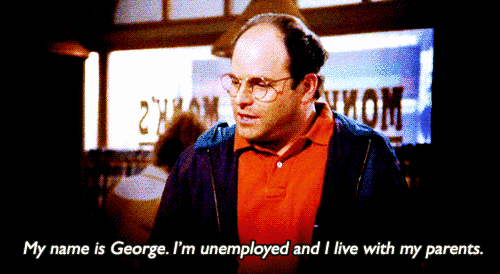Guide to Navigating Unemployment + Job Hunting During COVID-19
Nearly 10 million people in the USA have filed for unemployment benefits over the past two weeks. Not good with numbers? 8 million people live in New York City and 4 million live in Los Angeles. 10 million is A LOT of people. And, quite frankly, unemployment numbers are going up by the day. It feels like every single day I’m getting news of another small (and some rather large) businesses are closing and friends are losing their jobs. It’s disheartening and heartbreaking and sobering all at once.
If you’re looking for a job right now, here are some resources to bookmark:
CANDOR: The folks at Candor have put together a super comprehensive list that is being updated in real time with companies who are hiring, as well as those that are letting people go or declaring a hiring freeze
LinkedIn: The LinkedIn team has put together a page that’s also being updated in real time. The truth is there are some industries—from shipping to online learning— that are hiring to meet coronavirus-related demand. Maybe there are some jobs you wouldn’t have thought to apply for before, but right now…you could really use the money. I challenge and encourage you to think outside the box and say no to any feelings of shame. We’re all in this together!
Job Openings: Here’s a list of 20 virtual companies that are currently hiring and another list of 25 companies that are hiring remote roles and another favorite place of mine to look for roles, the Create & Cultivate Classifieds (they update this link regularly, so check back weekly).
Interview and Application Advice: Here’s a guide on how to job search during the Coronavirus straight from Recruiters
How To Make Your Resume Standout (Straight from a Recruiter)
GIG ECONOMY + FREELANCE
Whether you've been in the freelancing game for awhile now or brand spakin’ new to the gig economy, many people are turning to part-time and contract opportunities to supplement, or perhaps replace their existing work. If you've been a part of layoffs, furloughs and recommended shut-downs in a variety of industries, these resources will help keep you motivated when working for yourself.
Resources for Artists, Freelancers, and Creatives during COVID-19 Crisis
Ask an Expert: 5 Tips for How to Use Social Media to Grow and Scale Your Business During COVID-19
4 Questions To Ask Before You Ditch Your Day Job (For Your Side Hustle)
I want to be really clear about expectations right now. This is a hard and unprecedented time. It’s really important to abandon unrealistic expectations (I know, I know…this whole dang situation is unrealistic, but here we are). You may not be able to get work similar to your old job. So many firms are cutting jobs and freezing hiring. But there are lots of companies hiring in “essential” fields, including grocery and drugstores, order fulfillment and delivery drivers.
Walmart is hiring 150,000 new employees around the country and has sped its normally two-week hiring process down to 24 hours in some cases. Amazon is hiring 100,00 new workers to manage a surge in demand. CVS wants to add 50,000 more jobs. Pizza chain Domino’s is hiring 10,000 workers.
There are also opportunities to work as a freelancer or independent contractor. Uber is trying to recruit drivers to its Eats food delivery platform. With folks cloistered at home, there could be some money in delivering for other platforms such as Grubhub or DoorDash. If this isn’t something you’ve done before, I get it…it may feel like you’re having to totally change up your career path. I want to challenge you to think outside the box and do what you need to survive. Rejection is just redirection. Think of this time, your next gig…all of it, as a stepping stone that is redirecting you. You will come back stronger than ever. Life is life riding a bicycle, after all. In order to find balance, we must keep moving (my best friend Alicia would tell me this all the time).
If you need to file for unemployment, here’s a step-by-step guide that’ll walk you through the process.
If you recently lost your job, have been furloughed or just need to know more about how to navigate all of these uncharted waters, my friends over at Create & Cultivate put together a really thorough and informative FAQ, so I’m sharing their Q&A on this heavy topic here too.
What does furlough even mean? Why do companies furlough anyway?!
Furlough is a mandatory suspension from work without pay, which can be for any time period at the sole discretion of the company. This is a cost-saving method when the company does not want to terminate the employee but can’t afford to pay them. Furloughed employees may not do any work for the company. If they do any work for that company they must pay them for the day if hourly must pay for hours worked. For salaried employees, they must be compensated. Some companies will block access to email and other resources to ensure that no work is being done. It is important to discuss this with the company or with your employees so everyone understands how the furlough will work.
Do furloughed employees still get paid?
No, while furloughed employees will not be paid unless work is performed. (see above).
Is being furloughed actually better than being fired/laid off? Or is it the same thing? What’s the difference?
In some ways, yes. Although when furloughed the company is not paying you, the assumption (although the company is not obligated to) is that you will be rehired once the company returns to normal. This may also eliminate the need to re-apply, interview, run background checks, and more. Unlike a furlough, a lay off is a permanent separation from the company. Whether you were furloughed or laid off, if you are an "at-will" employee, you are free to apply and look for other work during this time.
How long can a company furlough an employee? Why do they choose that option instead of firing an employee?
The law does not define this time frame. As mentioned above, in some circumstances, the intention of the company is to bring the employee back after things return to normal and the company doesn't want to start the process from the beginning.
Can I collect unemployment when I’ve been furloughed? Can I still apply for other jobs? What are my rights?
Yes and yes. Your rights are the same as if you were employed as it relates to discrimination, retaliation, and other employment laws. Unless bound by a contract, you are free to look for other work, whether temporary or permanent. If furloughed or laid off and you have certain contractual restrictions such as non-competes you may want to discuss a waiver of these provisions with your employer. However, all applications for unemployment must be truthful. If you are furloughed but maybe now working part-time or other particular circumstances, you must disclose and correctly answer all questions on the unemployment application.
What steps can I take now that I have been fired, laid off, or furloughed? How can I get financial support while I look for work? What advice can you share?
Stay positive! Look for work or use this time to polish your resume, start a business you've always wanted or freelance! Update your resume and emphasize your flexibility, tech-savviness, and ability to work from home. Also, the CARES Act will provide for unemployment to be increased by $600 additional per week by the federal government and extend benefits for 13 extra weeks. Many lenders (e.g. credit cards, car loans, etc.) will offer forbearance or temporary holds on accounts to delay bills between 1-3 months. Student loans, for example, are delayed during this time. Additionally, the CARES Act provides for direct financial assistance to Americans in the form of a one-time direct payment in the amount of:
$1,200 for individuals earning $75,000 or less,
$2,400 for individuals filing a joint return earning $150,000 or less,
$1,200 for heads of household earning $112,500 or less, and $500 per child.
The U.S. Treasury stated that the administration expects to begin direct payments to individuals within three weeks of the CARES Act being signed into law.
Is my job still available when the company goes back to being in a financially stable position? How will I know that time has come?
This depends on your company and you. The company may not come back, so stay in contact and protect yourself. Do not assume there will be a job or a company to come back to and even if there is it may not be in the same financial position or have the same staffing needs as it was before. For companies who furloughed or took advantage of the CARES Act, and other government incentives, loans, and grants, there are advantages in the form of loan forgiveness, if they take the employee back and meet other requirements. Your company should communicate with you when you are able to return. Should you feel that your company might not make it, you should consider other employment options as soon as possible.
I’m a small business owner and I think I need to furlough employees. What are the pros and cons? Can employees dip into their PTO or vacation balances to be paid during the furlough?
Pros are that you can keep valuable employees with certain conditions. Employers should check with their benefits provider to determine what is required and see from a state practitioner what is required for furloughs. When you return to "normal," your uptime is faster, your team is in place and ready to work. Cons are that you may end up losing employees who need money and find other jobs before you can return to normal. You may end up paying for insurance benefits for employees during this time, which is also expensive.
Employees do not need to dip into their own sick and PTO time. Can they? That depends upon your state laws and company policy. A company is not required to advance paid time off that is not yet earned.
The company is required to pay Emergency Paid Sick Leave for those either (1) quarantined due to sickness or government order and cannot work remotely or in person or (2) is caring for someone who is sick or a child who is not in school. The maximum is (1) $5,110 (100% of base pay) and (2) $2,000 (2/3 of base pay). Some Companies may be eligible to apply for certain loans (which may eventually be forgiven if certain requirements are met) like the Payroll Protection Program which may lend up to 2.5X a business' average total monthly payroll if the business meets certain criteria.
How do I go about it? What tips can you share? Are there resources or templates I can use to help?
You can speak to an employment, corporate, or other attorney for help. Accountants and bankers often help with locating the applications for these various programs. The banks are currently developing processes and applications and those may not be available yet but contact your bank to find out more as things continue to progress. Other .gov websites may offer additional insight on unemployment applications and information regarding the CARES Act and its application.
I was recently laid off due to COVID-19 but I didn’t receive a severance package. Is that legal? What are my rights?
Federal law and most state laws do not require severance or any kind. Failure to pay severance is not unlawful, in most cases, barring an employment contract or union agreement.
I was laid off at work with no notice. Does my employer have to give me notice before laying me off? What are my legal rights?
With the exception of large companies under the WARN Act, which applies mainly to large companies, most small or medium-sized companies do not need to give notice.
How do I know if my layoff was illegal? Do employees have any protections from being laid off? Can you fight a layoff?
An employer who lays off may usually do so without legal recourse. However, if the selection of the person who is laid off is due to age, race, gender, national origin, pregnancy, color, religion, disability, or other protected category, the selection of that employee for lay off (who arguably would not have been laid off) may be unlawful. In other words, layoffs or furloughs do not relax the laws relating to unlawful discrimination and retaliation.
You would be better off working with an employer, rather than fighting (e.g. temporarily reduced hours or pay), if you wish to maintain that employment relationship. Otherwise, "fighting" a lay off would be no different now than if fired for any other reason. You are still terminated, but you will need to prove an unlawful motivation for you specifically if you wanted to file a claim for unlawful termination. However please keep in mind that each case is fact and state-specific and it's best if you feel you were wrongfully terminated to contact an attorney.
What can I do/what are my rights if I think I got fired for no reason?
In most states, you can be fired for a "good reason, bad reason, or no reason at all..." and it is lawful. If you believe you were terminated for an unlawful or discriminatory reason, contact an attorney to determine your rights.
Create & Cultivate is also hosting discussions with experts, mentors, and influencers daily at 9 am, 12 pm, and 3 pm PST on Instagram Live to cure your craving for community and bring you the expert advice you’ve come to know and love from C&C. Follow Create & Cultivate on Instagram, check out their Ask an Expert highlight reel for the latest schedule, and hit the countdown to get a reminder so you don’t miss out!








